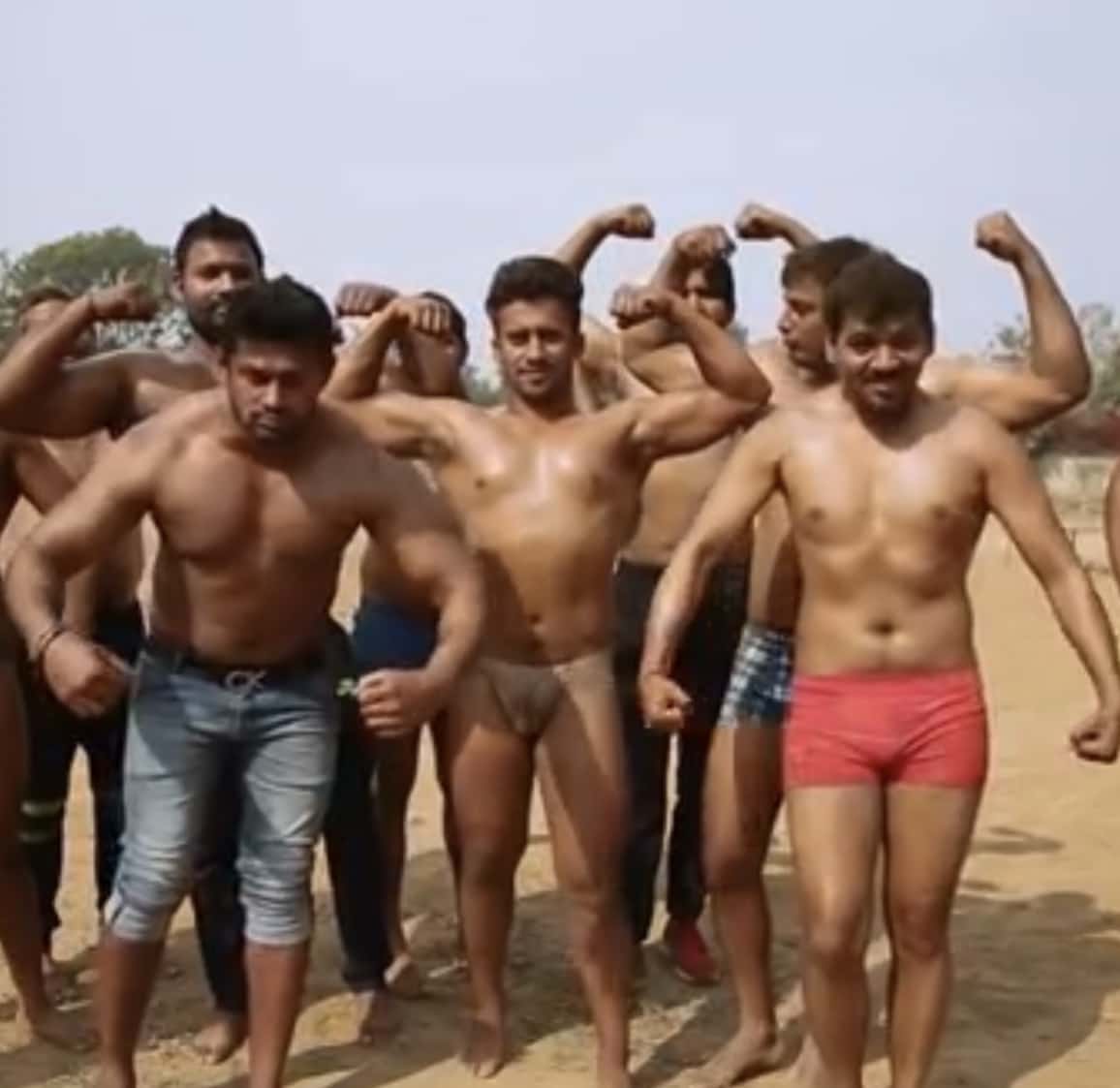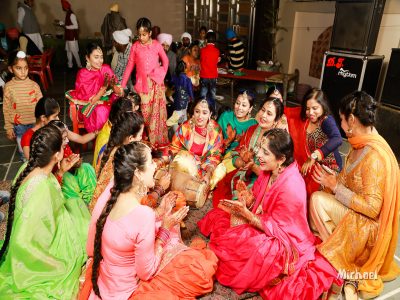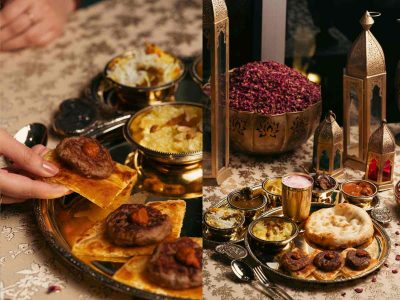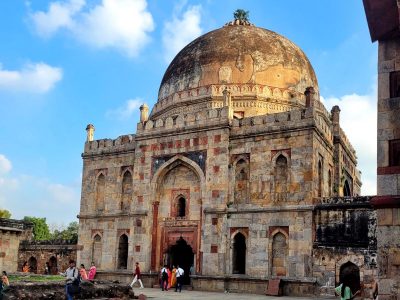For traditional wrestlers jobs like enforcers, personal security, manning cash collection points like the toll plazas, even organised crime are a niche professional avenue with that come with greater risks than rewards
It’s an overcast Sunday evening, outside a popular bar in the Kailash Market in South Delhi, Samar Chaudhary is getting ready for his shift as a bouncer. He drives a Maruti Zen with tinted glasses, a picture of his guru (wrestling teacher) can be seen on the dashboard, red carpet, blue velvet upholstery on the seat, a change of clothes, a red gym bag on the back seat are all a reminder of his profession.
He is accompanied by Sonu, a friend—also a distant cousin from his village of Fatehpur Beri. They work together, work out together in a local gym and live together in a rented accommodation in the Kotla Mubarakpur. Sonu is three younger to 30-year-old Samar, they have a similar physique, stout, broad chested with muscular arms with a slow gait. They both work as bouncers in different bars in the area.
They stand outside the bars, keeping watch, interacting with acquaintances, local cops are friends, let in people only after giving them an unfriendly glance. They both claim to be teetotallers. While Sonu does not like the idea of talking to journalists, it is Samar who does most of the talking.
“My father is a farmer” says Samar, “He also has a dairy, he’s old now, my younger brothers help him with the work, we recently built a new house. I support them sometimes, but never seek their support,” he explains. His mother is worried, Delhi is a bad place to work. “I have promised my mother that I will stay away from buraiya (bad things),” he adds. When asked to list some of the bad things—he starts by saying nasha or intoxication of any kind that includes cigarettes. On further prodding, he lists casual sex and association with the crime world, in same breath, as a social evil.
And why are they so secretive about their present occupation? One: the family doesn’t know about it. “It’s not very respectable, so many people in our village are bouncers. My family has high hopes for me. I’m a graduate, I went to an English medium school,” Samar explains, “My family, also Sonu’s parents, think we work in a call-center and work through the night, and that’s why we stay together away from home.”
They are both from the family of traditional wrestlers, also called the malla-yuddha, has been a popular sport since the 4th century—came under the influence of Persian Koshti in medieval times—and flourished in the akhadas of northern India. In more recent times, Kosti has inspired folkstyle and freestyle wrestling and also mixed martial arts. It’s no surprise wrestling is one of the very few sports India has done well in the international arena and has won five medals at the Olympics—of these two are to the credit of Sushil Kumar—arguably India’s most successful Olympian.
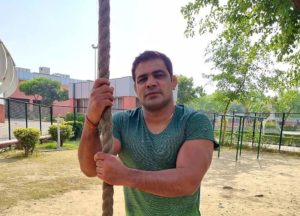
The arrest of Sushil Kumar for allegedly murdering another younger wrestler, Sagar Rana, has opened pandora’s box—the dirty underbelly of a revered sport. Delhi’s Chhatrasal wrestling complex (stadium)—India’s prime centre honing wrestling talent that has near-monopoly in selecting wrestlers for various segments—has the dubious distinction of being infiltrated by criminal elements to garner services of the wrestlers to carry out their nefarious activities.
Samar is aware of these developments. “We have many common friends,” he says. The lure of money is strong. Freedom is corrupting.” He talks about the system of Akhadas was hierarchical, closed, overbearing, and run by imperious gurus who enforce a rigorous routine, donning red loincloth, hyper-consumption of milk, ghee, almonds, their own value-system, end up creating a cadre of able-bodied, responsible, disciplined men with a similar mindset. Some even enforce celibacy as the necessary virtue.
In the modern context, the boom in multimedia, personal ambition, glamour world are all very inciting and inviting, so is the lure of making a fast buck. Being a bouncer is one of the most respectable of the niche vocations where the brawn is of the essence, the job of enforcers, personal security, and manning cash collection points like the toll plazas are others. Also, the organised crime world acknowledges Samar. There’s a growing nexus between certain sections of wrestlers with organized crime, particularly in the metropolis settings. Sushil Kumar is a good example.
In any case, “we are in close touch with the cops, it’s a professional requirement, we exchange favours, and sometimes this professional association results in a bonhomie, a certain trust, and there are always avenues available to make easy money,” explains Samar, “That’s what my mother cautions me against.”
He grew up in a very conservative environment—read patriarchal—where men and women lead segregated lives, the only females he interacted with during his formative years were either his mother, sister, or sisters-in-law. And they have a skewed concept of relationship, dating, and being friends with a woman. Objectifying women and implying sinister motives happen quite naturally to folks like Samar and Sonu. “I see the degradation of the society here on a daily basis: even women drink and smoke. Some ask for my number. I made the mistake of giving one of the regulars, she invited me home and even offered to pay.”
The three vices are nasha, maas (non-vegetarian food) and girls. “Those who fall for it, there’s no coming back. See what happened to Sushil bhai,” he adds, “no one is safe”.
Though he may have stayed away from all the temptations of the city that destroy life, he is not averse to making money. His immediate ambition is to buy a Fortuner–costs 30 lakhs–it’s a badge of honour that you have made it big in life. “Can you afford to buy a Fortuner?” I ask. “Not as a bouncer,” he retorts.
(Names have been changed on request)

